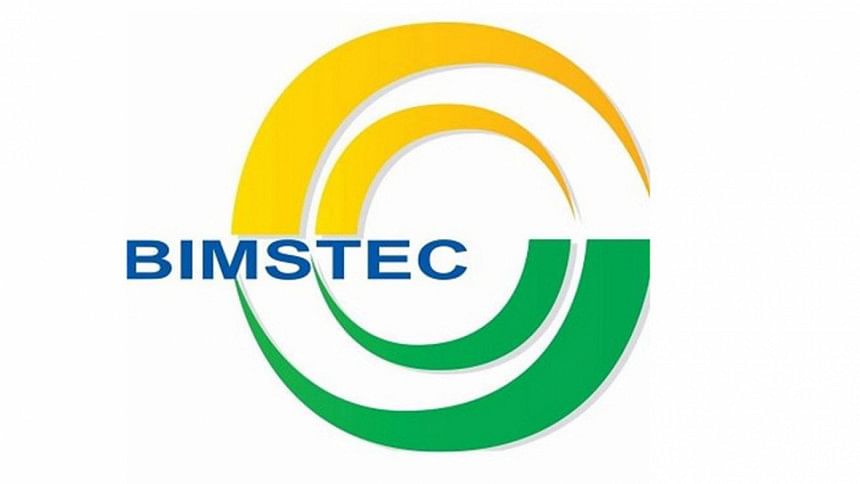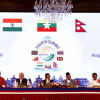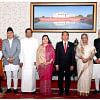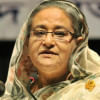4th BIMSTEC Summit kicks off in Kathmandu

The 4th Summit of the Bay of Bengal Initiative for Multi-Sectoral Technical and Economic Cooperation (BIMSTEC) kicked off today at Kathmandu of Nepal under the theme “Towards Peaceful, Prosperous and Sustainable Bay of Bengal Region”.
Current BIMSTEC Chairperson and Nepalese Prime Minister KP Sharma Oli inaugurated the summit at Hotel Soaltee Crowne Plaza in the Nepalese capital this afternoon.
Leaders of the seven-nation regional grouping including Bangladesh Prime Minister Sheikh Hasina, Indian Premier Narendra Modi, Chief Adviser (head of interim government) of Bhutan Dasho Tshering Wangchuk, Sri Lankan President Maithripala Sirisena, Myanmar President Win Myint and Thai Prime Minister Prayut Chan-o-cha are participating in the summit.
The Kathmandu city wore a festive look as it was tastefully decorated with the national flags of the seven countries as well as the big size portraits of the BIMSTEC leaders.
According to the Kathmandu Post, around 30,000 security personnel from the Nepal Army, the Nepal Police, the Armed Police Force and the National Intelligence Department have been deployed, in uniform and regular civil attire, to guard the summit.
The summit will mainly focus on connectivity, poverty alleviation, trade, investment, tourism, climate change and security challenges. Other areas of discussion include strengthening and making effective the BIMSTEC secretariat, establishing BIMSTEC development fund, Buddhist circuit, setting up regional centres, adopting BIMSTEC charter and rationalizing priority areas.
The summit will also witness the signing of a Memorandum of Understanding for the Establishment of the BIMSTEC Grid Interconnections to pave the way for trade in energy among member states.
The leaders are to adopt the 4th BIMSTEC Summit Declaration: “Towards a Peaceful, Prosperous and Sustainable Bay of Bengal Region” on 31 August at the conclusion of the Summit.
During the preceding meetings, several initiatives under agreed priority sectors will be reviewed with a view to enhancing inclusive growth and economic prosperity in the BIMSTEC region.
Following the conclusion of the two-day summit on Friday, the chairmanship of BIMSTEC will be handed over to Sri Lanka by the current chair Nepal.
Briefing reporters at the foreign ministry about the Kathmandu Summit, Bangladesh State Minister for Foreign Affairs Md Shahriar Alam yesterday said the Bimstec Convention on Mutual Legal Assistance in Criminal Matters will be signed during the Summit, aiming to curb crimes and terrorist activities in the region and promote mutual assistance in carrying out investigations.
“An MoU on the BIMSTEC Grid Inter-Connection which is already agreed on by all the member states is expected to be inked at the Summit,” he said.
This sub-regional organisation came into being on June 6, 1997, through the Bangkok Declaration comprising seven member states. Five of them -- Bangladesh, Bhutan, India, Nepal and Sri Lanka -- are from South Asia and two -- Myanmar and Thailand -- from Southeast Asia.
Initially, the economic bloc was formed with four Member States with the acronym ‘BIST-EC’ (Bangladesh, India, Sri Lanka and Thailand Economic Cooperation).
Following the inclusion of Myanmar on 22 December 1997 during a special Ministerial Meeting in Bangkok, the group was renamed ‘BIMST-EC’ (Bangladesh, India, Myanmar, Sri Lanka and Thailand Economic Cooperation).
With the admission of Nepal and Bhutan at the 6th Ministerial Meeting (February 2004, Thailand), the name of the grouping was changed to ‘Bay of Bengal Initiative for Multi-Sectoral Technical and Economic Cooperation’ (BIMSTEC).
The objective of building such an alliance was to harness shared and accelerated growth through mutual cooperation in different areas of common interests by mitigating the onslaught of globalization and by utilising regional resources and geographical advantages.
The 3rd BIMSTEC Summit was held in Nay Pyi Taw, Myanmar in 2014, and a BIMSTEC leaders’ retreat and the BRICS & BIMSTEC outreach Summit was held in Goa, India in 2016.

 For all latest news, follow The Daily Star's Google News channel.
For all latest news, follow The Daily Star's Google News channel. 








Comments